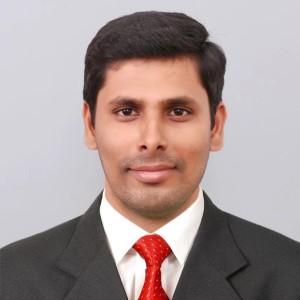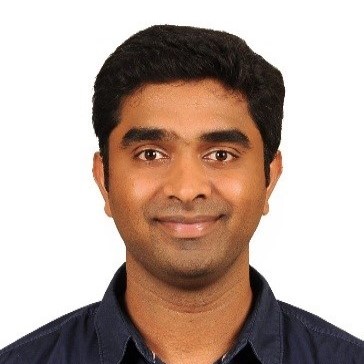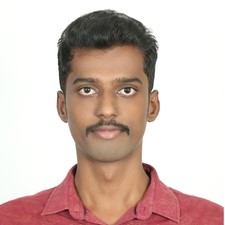With every business and organization going digital, the IT sector today is a booming field as compared to other sectors and there is a huge demand of Computer Science Engineers and programmers.
The Computer Science and Engineering (CSE) department began in 2010 with 60 students in its undergraduate program. By that same year, we expanded to accommodate 240 students. In 2014, we introduced a Master's program in CSE, starting with 18 students. Our department is also a recognized research center under Anna University, supporting over 50 research scholars in various fields. Currently, we serve over 900 students across undergraduate, postgraduate, and Ph.D. programs.
In just ten years, our department has achieved many milestones. We now have 50 faculty members, each an expert in different areas of computer science. Half of them have Ph.D. degrees, and many others are working towards them. We're proud that three faculty members have completed postdoctoral fellowships at international universities. Our faculty contribute through publications in journals, research articles, and conference presentations.
To be a premier centre for education, dissemination of knowledge and research in the frontier areas of computer science and engineering to serve the community with moral values.
PEO 1: Acquire knowledge and skills on cutting edge technologies in the field of computer science and engineering.
PEO 2: Inculcate a passion for continuous learning through further studies and research in the field of computer science and engineering.
PEO 3: Develop innovative ideas upholding the rich value systems to solve the changing technological needs.
PO 1. Engineering knowledge: Apply the knowledge of mathematics, science, engineering fundamentals, and an engineering specialization to the solution of complex engineering problems
PO 2. Problem analysis: Identify, formulate, review research literature, and analyze complex engineering problems reaching substantiated conclusions using first principles of mathematics, natural sciences, and engineering sciences
PO 3. Design/development of solutions: Design solutions for complex engineering problems and design system components or processes that meet the specified needs with appropriate consideration for the public health and safety, and the cultural, societal, and environmental considerations
PO 4. Conduct investigations of complex problems: Use research-based knowledge and research methodsincluding design of experiments, analysis and interpretation of data, and synthesis of the information to provide valid conclusions
PO 5. Modern tool usage: Create, select, and apply appropriate techniques, resources, and modern engineering and IT tools including prediction and modeling to complex engineering activities with an understanding of the limitations
PO 6. The engineer and society: Apply reasoning informed by the contextual knowledge to assess societal, health, safety, legal and cultural issues and the consequent responsibilities relevant to the professional engineering practice
PO 7. Environment and sustainability: Understand the impact of the professional engineering solutions in societal and environmental contexts, and demonstrate the knowledge of, and need for sustainable development
PO 8. Ethics: Apply ethical principles and commit to professional ethics and responsibilities and norms of the engineering practice
PO 9. Individual and team work: Function effectively as an individual, and as a member or leader in diverse teams, and in multidisciplinary settings
PO 10. Communication: Communicate effectively on complex engineering activities with the engineering community and with society at large, such as, being able to comprehend and write effective reports and design documentation, make effective presentations, and give and receive clear instructions
PO 11. Project management and finance: Demonstrate knowledge and understanding of the engineering and management principles and apply these to one's own work, as a member and leader in a team, to manage projects and in multidisciplinary environments
PO 12. Life-long learning: Recognize the need for, and have the preparation and ability to engage in independent and life-long learning in the broadest context of technological change
PSO 1: Solve complex engineering problems by building integrated systems across various domains of Computational Intelligence.
PSO 2: Apply technical skills to produce solutions that meet the requirements of the emerging technologies in Computer Science and Engineering.
Duration: 4 years (Regular) / 3 Years (Lateral Entry)
No. of Semesters: 8 (Regular) / 6 (Lateral Entry)
Intake / No. of Seats: 240





















| S. No. | Course Code | Course Name | Link for the Video |
|---|---|---|---|
| 1 | U21AMG05 | AI Fundamentals and Machine Learning | View |
| 2 | U21CS503 | Mobile Application Development | View |
| 3 | U21CS403 | Operating Systems | View |
| S. No. | Course Code | Course Name | Link for the Video |
|---|---|---|---|
| 1 | U21CS302 | Database Management systems | |
| 2 | U21CS402 | Theory of Computation | |
| 3 | U19CSG303 | Data Structures | |
| 4 | U21AMG05 | Artificial Intelligence | |
| 5 | U19CSP07 | Mobile Computing | |
| 6 | U19CSP05 | Blockchain Technologies | |
| 7 | U19CSP28 | Human Computer Interaction | |
| 8 | U19CS603 | Cloud Computing | |
| 9 | U19CSP38 | Social Network Analysis | |
| 10 | U21CS602 | Compiler Design | |
| 11 | U21CS402 | Design and Analysis of Algorithms |

Download the strategy document to understand what are the opportunities available for a student at KPRIET